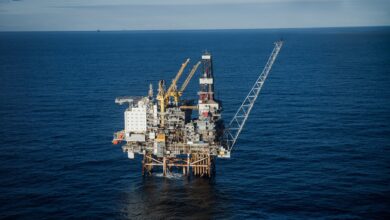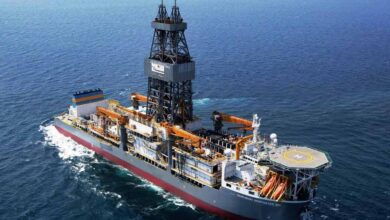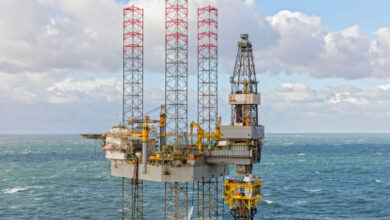Survey ranks US, Brazil as top investment markets but raises concerns for costs, risks
By Katie Mazerov, contributing editor

The US and Brazil rank as the most favorable regions for oil and gas investment in 2014, but there will be pressures to reduce costs and consolidate, a new report from DNV GL stated. These pressures include a greater discipline over capital expenditures in response to rising operational costs, increasing regulation and shortage of skilled workers, according to the report based on a survey of more than 430 senior oil and gas executives and in-depth interviews with more than 20 executives.
Survey respondents ranked Australia No. 3 for investment, followed by Malaysia and China, but dropped the UK and Norway from shared fourth place to seventh and ninth places, respectively, because of the lack of major investments. Nigeria was cited as the No. 1 least favorable investment destination, followed by three Middle Eastern countries with ongoing political issues – Iraq, Afghanistan and Iran.
Unconventional oil and gas production and rising offshore production gave the US top ranking, despite increasing costs and flat oil prices. “The price of oil is always a major factor in the economic viability of any development project, but a big issue is the trend for more challenging exploration projects, such as deepwater campaigns, that are requiring the commitment of large sums of money with more risk and uncertainty,” said Arthur Stoddart, director of Marine and Technical Services, North America, for DNV GL.
“These projects demand high-specification and high-quality drilling equipment that is driving the price up.” As examples, he cited Chevron’s decision to hold off on the Rosebank development west of the Shetland Islands due to economic reasons. For some US Gulf of Mexico projects where the initial engineering work has been completed, high costs also have delayed development plans.
In Brazil, deepwater pre-salt discoveries present attractive investment opportunities, but regulations make them expensive, Mr Stoddart said. Australia, with its huge LNG projects at a time when global gas demand for gas is high, is a market with high operating and labor costs, he continued. The report does not reflect the recent energy reforms passed in Mexico, however. “Assuming all the reforms take effect this year, Mexico will become an increasingly attractive destination for investment,” he noted.
Supply chain consolidation
The report also noted that, since 2012, the percentage of industry leaders planning to increase investment in new projects has dropped by 18% as operators focus on controlling risk and cost by seeking greater equipment standardization.
“The entire industry has to find better ways to execute projects more cost-effectively, manage risk and still be in compliance with increasing regulation that is under way, especially in the US,” Mr Stoddart said. “This will put pressure on the suppliers and the service sector toward more consolidation, a trend that will cascade throughout the entire supply chain, favoring bigger companies with deeper pockets.” He cited the recent $3.2 billion consolidation of two major engineering companies, AMEC, the second-largest UK oil and gas engineering company, and Switzerland-based Foster Wheeler AG.
Approximately 40% of the survey respondents were oil and gas operators, and the remaining 60% were suppliers and service companies. Among US respondents, 92% said they are confident about overall prospects for their business, with 45% saying that challenges surrounding compliance with new regulations will impact business and 59% listing skill shortages as the biggest barrier to growth.




